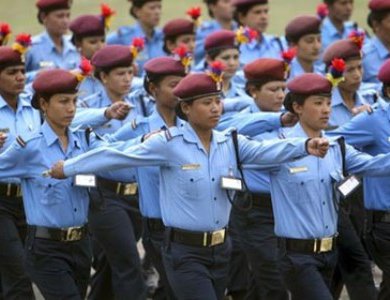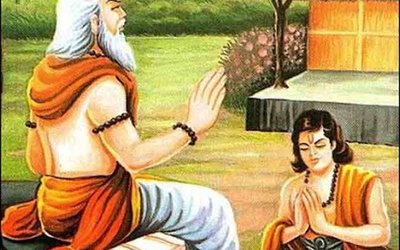
“ I would give all my fame for a pot of ale, and safety,” a frightened boy cries out before a battle in Shakespeare’s King Henry V. Internal security is the enduring yet elusive quest of all the individuals. Nepalese are no exception.
As the pace of modernization and urbanization grows, various criminal activities like extortion, kidnapping, killing, and cyber crimes increasing occur, along with road accidents and so on. Internal feuds, terrorism, fake currency, human trafficking, and smuggling also rise. Increasingly, involvement of external players in the internal situation also becomes a major issue.
Maintaining the law and order in such a situation requires a well-equipped and stable police force. However, this is what has been lacking in Nepal Police.
Sandwiched between Asia’s two emerging powers India and China, Nepal has its national police force working in a very difficult position. As a frontline civilian organization to provide safety to Nepalese citizens, Nepal Police needs to keep vigil all the time in providing a sense of security and law and order to the people.
However, Nepal Police- which aims to maintain internal order- has always been an institution of disorder since its formation 58 years ago as a modern organization. Some blame politicization as responsible for the present disorder. Others disagree and stress for radical change in the organizational setup.
Had Nepal Police followed the radical change with all political changes, the organizational and institutional setup would have completely crumbled. Nepal Police retained its identity and organizational stability because it followed the evolutionary path.
The state survived on hope of the people and the police was the organization that helped retain the hope all the time. Once the state failed to fulfill people’s hope of living in orderly society and secure environment, the utility of the state will be lost. This reminds of the importance of internal order and role of police.
At a time when Nepal Police has been facing several challenges and passing though a course of prolonged political instability and growing apathy, the Center for Justice and Security Studies (CSJS), led by former Additional Inspector General of Police Dr. Govinda Thapa, has published a book named Kashautima Nepal Prahari (Nepal Police on Test).The book discusses the overall aspects of Nepal Police and its role in internal security.
Consisting of articles written by various scholars, the book is the first of its kind, which discusses the internal security situation and role of Nepal Police. Edited by journalist Kiran Nepal, the book has articles by senior police officer Bhuwan Chandra Bhatta, Dr. Govindaa Prasad Thapa, Anantaram Bhattarai, Rabiraj Thapa, Rameshwor Bohara, former attorney general Dr. Yubaraj Shangraula and former home secretary Shreekanta Regmi.
Importance of Law and Order
Maintaining law and order, providing justice and externally defending the border are the fundamental functions of the state. Thus, the police organization is directly associated with the fundamental parts of the state, although this aspect goes missing in the broader debates about the country’s internal security.
The experiences have shown that an organization thrives only in evolution. Nepal Police is no exception. Despite facing several troubles and upheavals, Nepal Police survived and maintained its identity because of it was sticking to its old acts for 58 years. But, in the name of change, politicians have manipulated Nepal Police Regulations several times, such as, by changing the tenure of police officers.
By imposing 30 years threshold just after the People's Movement in 2006, the organizational set up was made in favor of then home minister. After the introduction of this provision, a long list of efficient and capable young police officers retired and many other are going to follow suit.
Despite the jolt of instability, Nepal Police is making certain progress. “We have made a lot of improvement in training. The development of organizational structure is a regular process. It remains perfection oriented. In countries like ours, it is impossible to have a radical change. This is a reality,” said Nepal Police Chief Kuber Singh Rana, addressing the book launching.
For the past 58 years, Nepal Police has gone through a series of instability. At a time when the country itself has been mired in political instability, the challenge faced by Nepal Police is no different.
It fought a brutal and violent conflict as a front runner organization in the 12-year long Maoist insurgency, losing hundreds of officers, personnel, and infrastructure in various parts of the country.
Tragedy
At one time, the institution shrank from 1915 in 1996 to 749 in 2007. Out of 10 chiefs of police in the last 15 years, six chiefs are facing one or other accusation on several charges of misuse of authority. Out of them, only one chief recently got a clearance. These chiefs led the police organization in crucial times and physically survived from violent attacks. However, they got stuck with legal battles at the end of their career. Compared to Panchayat days, Nepal Police suffered a lot during the period of democracy.
Nepal Police has seen three phases of political system. It was set up in 1955, just five years after political change of 1950, to provide law and order. Then it was under the elected government of 1959 and its organizational and institutional capability grew during the period of 1960 to 1990. Along with maintaining law and order, Nepal Police is also given the role to prosecute politics related cases.
As Nepal has been in the long process of political transition, there is no easy way out for Nepal Police. "Nepal Police has a very important role to provide a secure environment to the people. Whatever the situation it faces, Nepal Police will need to guarantee the people's right to live in peace," said Khadga Jit Baral, former chief of Nepal Police.
At a time when Nepal has been passing through a prolonged political instability, Nepal Police, despite being embroiled in sporadic cases of misuse of authority, has been able to provide the security to the citizens.

Keshab Poudel
Poudel is the editor of New Spotlight Magazine.
- ERC Nepal Is Focused On Expanding Distribution And Transmission To The Private Sector: ERC Chair Dr. Dhital
- Jul 06, 2025
- FOURTH PROFESSOR Y.N. KHANAL LECTURE: Nepal-China Relations
- Jun 23, 2025
- Colonel JP CROSS: Centenary Birthday
- Jun 23, 2025
- BEEN: Retrofitted For Green
- May 28, 2025
- GGGI has been promoting green growth in Nepal for a decade: Dr. Malle Fofana
- May 21, 2025















